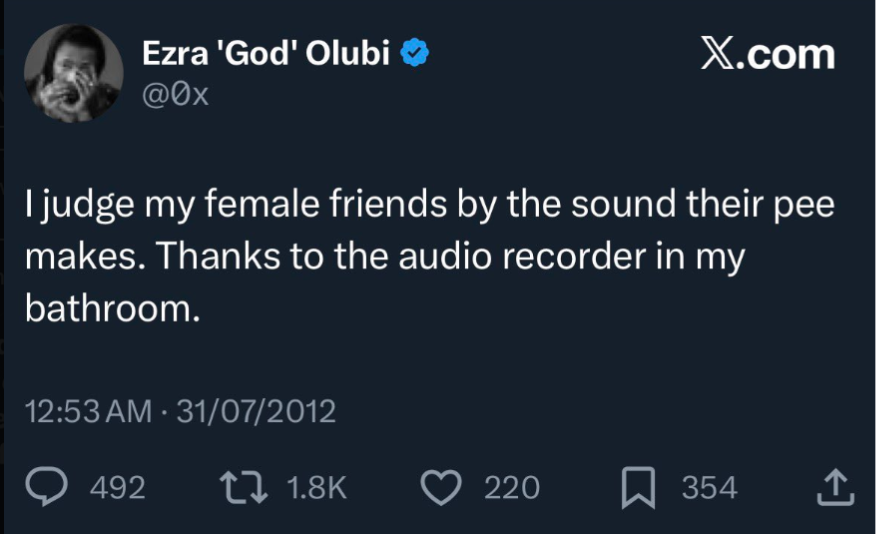Nigerian fintech startup Paystack has suspended its co-founder and Chief Technology Officer, Ezra Olubi, over allegations of sexual misconduct after his tweets, posted years before he co-founded Paystack, resurfaced on Thursday and quickly spread across X.
The company confirmed it has launched a formal investigation into the matter, highlighting the growing scrutiny of workplace conduct in Africa’s tech sector.
“Paystack is aware of the allegations involving our Co-founder, Ezra Olubi. We take matters of this nature extremely seriously. Effective immediately, Ezra has been suspended from all duties and responsibilities pending the outcome of a formal investigation,” the company stated
“Out of respect for the individuals involved and to protect the integrity of the process, we will not be commenting further until the investigation is complete,” they added.
Social media activities
Between 2009 and 2013, Olubi allegedly posted a series of sexually explicit tweets making comments involving minors and referencing sexualized anime characters.
Though not a stranger to controversies, as his dressing lifestyle and mode of dressing have always sparked debates, Olubi in 2022 received a national honour as he was awarded the Order Of The Niger (OON) by former President MUhammadu Buhari.
Following the backlash from his old tweets, Olubi deactivated his X account on November 13 and has not responded publicly to the allegations.






Paystack’s influence
Paystack is a Nigerian fintech company founded in 2015 by Shola Akinlade and Ezra Olubi. Its core offering is a payment infrastructure that enables businesses in Africa to accept payments online and offline through cards, bank transfers, USSD, QR codes, and mobile money. In its early stage, Paystack was accepted into the Y Combinator accelerator in 2016, where it received $120,000 in funding.
Later that year, it raised $1.3 million in seed funding. By mid-2017, Paystack was processing about N1 billion in transactions monthly. The company’s momentum continued in 2018, it raised an $8 million Series A round led by Stripe, with participation from Visa, Tencent, and other investors.
In October 2020, Stripe acquired Paystack in a deal worth roughly $200 million, making it one of the largest fintech exits in Nigeria.
More recently, Paystack has taken steps into investing, leading a consortium to acquire Brass, a Nigerian fintech focused on SMB financial tools.
Overall, Paystack has grown from a small startup into a major payments infrastructure player in Afric,a backed by global investors, integrated with Stripe, and with a growing footprint across the continent. Because of Paystack’s size, influence, and close association with global payments giant Stripe, the handling of this investigation is being closely watched across the tech sector.
What you should know
- Olubi’s suspension comes amid rising public concern over child sexual abuse in Nigeria. Incidents involving minors have drawn national outrage and highlighted gaps in the enforcement of existing laws.
- The Nigerian Senate has strengthened the country’s legal framework against child sexual abuse by passing amendments to the Criminal Code Act that prescribe life imprisonment for anyone convicted of defiling a minor. The amendments were adopted on October 21, as part of the Criminal Code (Amendment) Bill, 2025 (HB. 151), a concurrent bill previously passed by the House of Representatives.
- The changes remove the option of fines for defiling a minor and elevate penalties for sexual offenses against children. Life imprisonment is now mandatory for anyone found guilty of defiling a minor, regardless of gender. The bill also sets a ten-year minimum sentence for rape, redefining it to include both male and female perpetrators.
- In addition, the statute of limitation on defilement has been deleted, making such offenses prosecutable regardless of when they occurred. Gender bias in the definition of rape has also been removed, ensuring that both men and women can be prosecuted under the same law.

